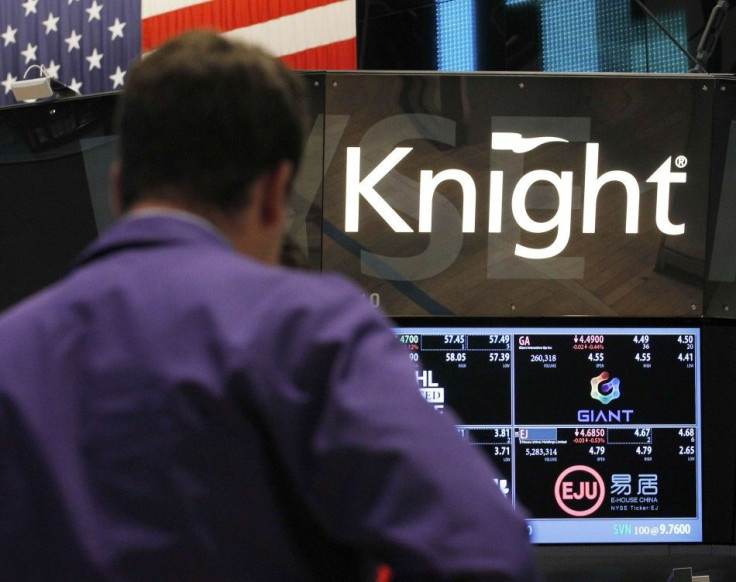Knight Capital's Woes Continue as Stock Plummets, Issues Defect Market Marker

Knight Capital Group Inc. (NYSE:KCG) saw shares in the company drop precipitously Monday -- at one point losing more than 7 percent of their value -- as the bruised broker-dealer continued to pick itself up less than two weeks after a trading algorithm gone berserk saddled the firm with $440 million in losses.
The firm, which has since come back from the brink by securing $400 million in financing from investors, was allowed to resume market-making activities Monday by the operators of the New York Stock Exchange. The firm had continued trading and routing client orders, but been suspended as a market-maker of 680 securities the day after its trading fiasco. Rival firm GETCO had assumed marker-making duties for those issues.
"While there is certainly some trading risk for our firm, clearly everyone involved is aligned around a common desire to maintain orderly markets, continue servicing issuers and investors, and support Knight as they return to normal operations," Todd Abrahall, head of Getco's designated market-making unit, had told The Wall Street Journal last week.
NYSE Euronext (NYSE:NYX), the exchange operator, said in a statement the move came "in light of the completion of Knight Capital's recapitalization plan."
But not everyone seemed to have the same confidence in Knight. DDR Corp. (NYSE:DDR), a real estate investment fund, moved the market-making for both its corporate shares and shares in three exchange-traded closed-end funds away from Knight, picking Goldman Sachs to be the firm's designated trade-runner. So did Genpact Limited (NYSE:G), a business process services provider.
Companies can choose to change market-makers in their shares freely, and the practice is not rare, but it appears somewhat suspect coming at such a sensitive time for Knight. Neither DDR nor Genpact commented for this story.
In mid-afternoon trading on the New York Stock Exchange, shares of Knight Capital Group traded at $2.77, down 13 cents or 4.48 percent from Friday's close. The firm has lost nearly three-quarters of its market value following the trading imbroglio.
© Copyright IBTimes 2025. All rights reserved.





















